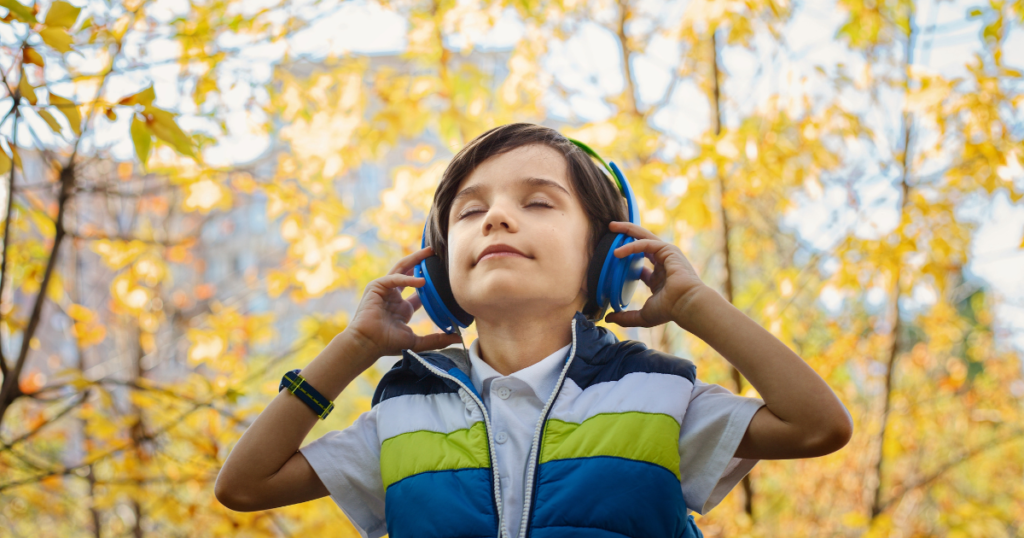Understanding Mindfulness
Mindfulness, in the simplest terms, is the practice of focusing one’s awareness on the present moment while calmly acknowledging and accepting one’s feelings, thoughts, and bodily sensations. This practice, often used as a therapeutic technique, has its roots in Buddhist meditation principles and has been widely incorporated into Western psychology and health practices. In adults, mindfulness has been shown to reduce stress, increase focus, and contribute to improved mental health overall. But what about children? Can they benefit from mindfulness training too? The answer is a resounding “yes!”1.
The Crucial Role of Sleep in Children’s Health
Before we delve into the specifics of mindfulness training for children, it’s important to understand the critical role that sleep plays in a child’s health and well-being. According to the American Academy of Pediatrics, children who get the recommended amount of sleep have improved attention, behavior, learning, memory, emotional regulation, quality of life, and mental and physical health. Unfortunately, many children are not getting the amount of sleep they need, leading to a variety of physical and mental health issues.
Summary: Sleep is a fundamental part of children’s overall health and well-being, affecting everything from their physical health to their cognitive and emotional development.
How Mindfulness Can Improve Sleep
Multiple studies have suggested that mindfulness can significantly improve sleep quality. A systematic review of 18 studies, published in the journal Annals of the New York Academy of Sciences, found a strong association between mindfulness and improved sleep quality. By calming the mind and reducing stress, mindfulness practices can help individuals fall asleep more easily and stay asleep longer.
For children, who often have difficulty “switching off” their active minds at bedtime, mindfulness exercises can provide the tools they need to relax and prepare for sleep. For example, guided visualizations or simple breathing exercises can help children transition from the hustle and bustle of the day to the calm and quiet of nighttime. By practicing mindfulness, children can learn to quiet their minds, focus on their breathing, and prepare their bodies for sleep.
Summary: Mindfulness exercises, such as guided visualization and breathing exercises, can help children relax, quiet their minds, and prepare their bodies for sleep.
Mindfulness and Mental Health in Children
Beyond sleep, mindfulness can have significant benefits for children’s mental health. The practice of mindfulness can help children manage stress and anxiety, improve their ability to focus and boost their emotional regulation skills.
A study published in PLoS One found that school-based mindfulness programs can reduce symptoms of depression, anxiety, and stress in children, while also improving their resilience and coping skills. By teaching children to be present in the moment and accepting of their thoughts and feelings, mindfulness can equip them with the tools they need to navigate the ups and downs of life.
Summary: Mindfulness training can help children manage stress, improve focus, and develop better emotional regulation skills.
Implementing Mindfulness Practices at Home and School
Given the benefits of mindfulness for children’s sleep and mental health, it’s clear that this practice deserves a place in both the home and school environments. Parents can introduce mindfulness through simple exercises such as deep breathing, guided visualizations, or even mindful eating.
Schools, too, can integrate mindfulness practices into their daily routines. Stanford University School of Medicine conducted a study involving 115 children from low-income households. The children, aged between eight and eleven, were taught mindfulness practices at school for two years. The result was a remarkable increase in their total sleep time by an average of 74 minutes per night. The children who said they used the breathing exercises outside of the classroom experienced the biggest increases in total sleep. The study also revealed that the mindfulness training boosted the duration of kids’ rapid eye movement (REM) sleep, which is important for emotional well-being and resilience1.
Summary: Incorporating mindfulness practices at home and school can significantly improve children’s sleep and mental health. These practices are particularly beneficial for children from low-income families, as they are cost-effective and can be practiced anywhere and at any time.
The Path Forward
Clearly, mindfulness training has a powerful role to play in supporting children’s sleep and mental health. The practice provides tools to help children calm their nervous system in preparation for sleep and improves their ability to manage stress and emotional upheaval. As parents, educators, and caregivers, we have an opportunity to introduce these beneficial practices into children’s daily routines, setting the stage for healthier, happier futures.
Interested in learning more about mindfulness exercises for children? Check out these 51 engaging mindfulness activities that can help your children develop self-awareness and self-regulation skills2. You can also start mindfulness practices with simple breathing exercises, mindful walks, or visualization exercises as suggested by Dr. Leela R. Magavi1.
This is just the beginning of the conversation. There is so much more to explore about mindfulness training for children’s sleep and mental health. If you want to continue the discussion or have any questions, feel free to reach out via our contact page. Together, we can build a healthier and more mindful future for our children.
